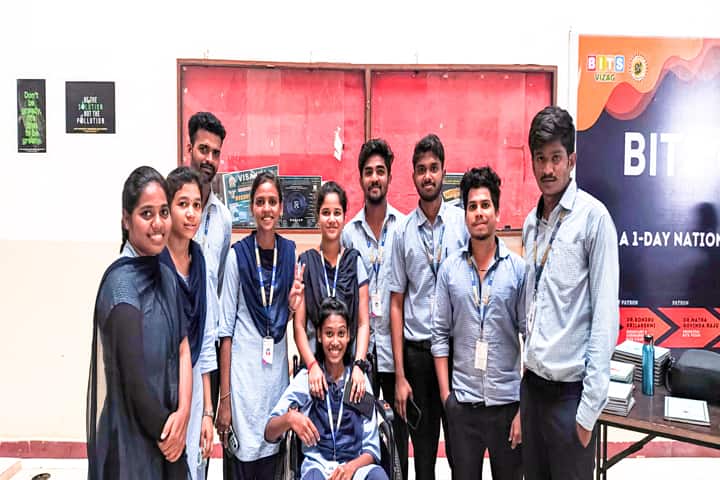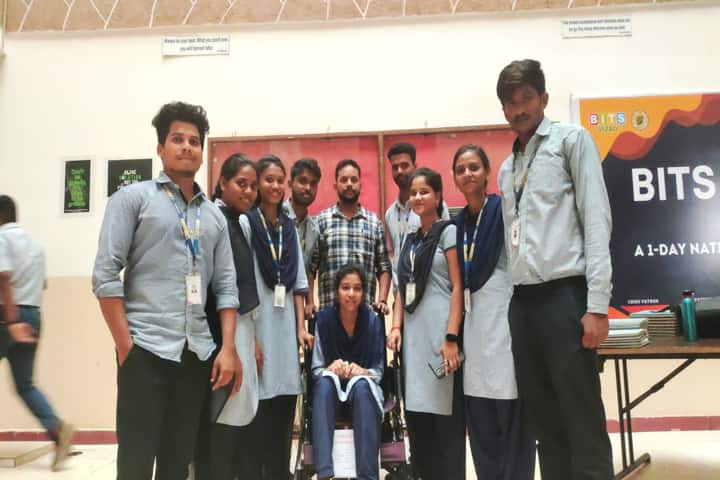

The innovative engineering students of Baba Institute of Technology & Sciences in Vizag who made a wheelchair that can be operated manually, by voice and by switch
Innovation is the hallmark of engineers and it becomes more important when it is done to make a difference in the life of people, especially, the underprivileged and specially-abled. This is what the final year students of electrical engineering course in Baba Institute of Technology & Sciences in Visakhapatnam have done as part of their compulsory project work in their fourth year.
Using their inventive streak, these students have developed a wheelchair where the user has multiple choice to control either through voice or a switch or manually.
Initially the team included five students who were later joined by another five. The 10-member team was guided by M.V.S. Premsagar, Assistant Professor in Electrical Department.


Elaborating on why they chose to make this wheelchair to India Narrative, M. Venkata Nookesh the team lead said: “We wanted to create and invent something which will not just be confined to the laboratory but will have real time functionality and utility for people at large. We found that specially-abled people find it very difficult to move around making them dependent on others and efficient wheelchairs were very expensive. So, we decided to do something in this field.”
Nookesh further added: “We found that wheelchairs operated with joysticks or power-operated were very expensive and their cost was more than Rs.1 lakh while the manual ones were difficult and strenuous for the specially-abled people. Thus, we decided on multi-operational wheelchair which was durable, affordable and accessible to the larger population, especially the less privileged.”
The wheelchair is powered by a rechargeable battery.
Sharing details about the wheelchair, Nookesh said its weight is 25 kg and a person weighing up to 75 kg can use it. “We can modify it to suit those who weigh more and this will require changes in the battery and the framework.”
What makes the wheelchair safe and secure are SOS and GPS facilities in it. “The former allows the person with disability to alert five people whose mobile numbers are fed in the software. In case of emergency, they will all receive alerts when the button is pressed. The latter will enable parents, guardians and family members to know the location of the person using the wheelchair so that they can quickly reach him or her,” disclosed Nookesh.
At present, it costs Rs.30,000 but the team – all of whom have now graduated – are working to reduce it. “We are looking for collaboration to manufacture the wheelchair on a large scale and hope that this will further reduce the cost of the end product,” Nookesh remarked.
The team included V. Akhila, the second lead; K. Satyavathi; M. Dileep Kumar; B. Keerthi Rao; K. Dharani; K. Sandhya; S. Karthik; G. Naresh; and K. Uday Kumar — split into two groups of five each with one taking care of software and the other hardware. Initially they did not know much and had to research a lot to gain knowledge about wheelchairs.
The prototype took six months and another six were required for the final product. The students, after attending their classes in the morning, worked in the afternoon on the project. “We faced several challenges. It was like one step forward, two backwards but we persisted and slowly we managed through trial and error to finalise the blueprint,” revealed Nookesh.
Incidentally BITS, Vizag has helped the students to file a patent for the wheelchair.
The team hopes that their labour of love will reach a larger number of specially-abled people making them self-reliant and confident.
External Affairs Minister S Jaishankar on Thursday met a delegation of special envoys from the…
Amnesty International has issued a report demanding the immediate and unconditional release of detained leaders…
India on Thursday dispatched a consignment of 300,000 doses of Measles and Rubella vaccines, along…
At least four people were killed and dozens injured in violent clashes between law enforcement…
An earthquake of magnitude 7.3 on the Richter Scale rattled Alaska in the early hours…
Amid rising global tensions and economic uncertainty, External Affairs Minister S Jaishankar on Wednesday raised…